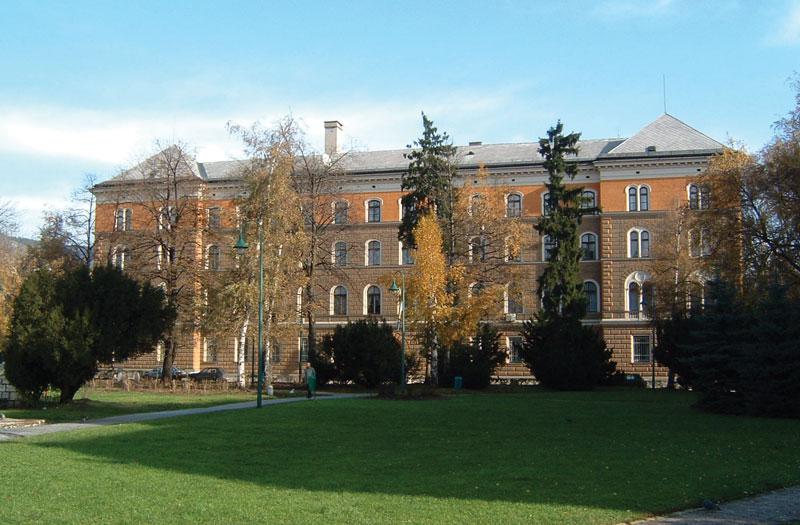By The Center for Investigative Reporting
Of the five finalists for the judgeship that will open in August when Constitutional Court of Bosnia and Herzegovina (BiH) President Hatidža Hadžiosmanović-Mahić retires, two have extensive legal expertise and experience, but neither is favored to win the job.
Sevema Sali-Terzić has been a senior legal advisor in the Constitutional Court since 2004, and Faris Vehabović, now a judge on the Federation of BiH (FBiH) Constitutional Court, is a former registrar of the state-level Constitutional Court.
But the other three candidates all have strong political connections that they lack. The opening is one of four on the nine-member court that the Parliament of FBiH fills.
Court watchers say the most formidable candidate may be Damir Arnaut, who has had an extensive legal career and is a member of the Party for BiH (SBiH).
Fourteen people in all applied for the judgeship. A five-person work group that studied resumes and interviewed applicants winnowed the list to five, and the Selection and Appointments Commission of the FBiH Parliament will now turn over one or more of the five names to the full Parliament for voting. The Commission is set to meet on that matter June 24.
Here is a look at all five judge candidates:
Sevima Sali-Terzić 
Sali-Terzić has been a senior legal advisor in the Constitutional Court for four years. A Sarajevo native, Sali-Terzić, 47, graduated from the Sarajevo Law School in 1983.
She began her career with Dunav, a Sarajevo insurance company. She spent the first two years of the war as a lawyer in the Stari Grad Municipality and the next two as a judge in the civil law department of the Basic Court I in Sarajevo. From 1997 to 2004 she was head of Global Rights – Partners for Justice in BiH, where she promoted civil society and human rights.
She has written and coauthored a number of publications on human rights and discrimination and is considered an expert on the European Convention on Human Rights and Fundamental Freedoms.
Amor Mašović 
Mašović was born in Sarajevo in 1955 and graduated from the city’s Law School. He began his career as an intern in his father’s and uncle’s law firm and worked as a lawyer until the war broke out.
He then worked on a commission for the exchange of prisoners of war that later became the State Committee for the Search of Missing Persons. He has been involved in the discovery and exhumation of bodies from more than 3,350 mass and individual graves. He and his team have found about 18,000 individual remains, mostly Bosniaks.
A member of the Democratic Action Party (SDA), he has held public positions from 1998 to the present. He is a member of the House of Representatives of the Parliament of the FBiH.
Damir Arnaut 
Arnaut holds a Ph.D. in law from the University of California at Berkley in the U.S.
In addition to fluent English, he also speaks French and German.
He is a former legal assistant for the American State Department, where he worked on cases involving the United Nations and associated international organizations. In 2006 he worked for the White and Case LLP international law firm in Washington.
Last year he became the advisor for constitutional and legal matters for BiH Presidency member Haris Silajdžić.
Faris Vehabović 
Vehabović, 41, is another Sarajevo native and graduate of the Sarajevo Law School.
From 1992 to 1996 he worked for the Sarajevo police and then became a lawyer for the office of the Human Rights Ombudsman of BiH. He began working at the Constitutional Court of BiH in 2001 as registrar. He is now a judge in the Constitutional Court of FBiH.
Fluent in English, he holds a master’s degree in European studies from the Center for Interdisciplinary Postgraduate Studies of the University of Sarajevo and University of Bologna. His thesis was on ‘Relation of the Constitutions of BiH and European Convention: Role of the Constitutional Court of BiH and possible development directions.’
He has also studied human rights and democracy at the University of Bologna and the Institute Balkanica. He has trained and worked with the European Court of Human Rights in Strasbourg.
Mirsad Ćeman 
Ćeman, born in 1955 in the village of Miljanovci near Tešanj, graduated from the Banja Luka Law School and then went to work in the legal department of the Tešanj Municipality. After two years he went to work for the Energoinvest RO Enker spark-plug company, where he remained until 1990.
He quit as head of the Municipality Executive Board at that time to work in the legislative body of the Zenica-Doboj Canton and in the Parliament of FBiH.
He became a senior SDA official and worked in Parliament on committees dealing with human rights and constitutional matters. He passed his bar examination in 1998 at the age of 43. Last year he left the party to dedicate himself to his legal practice.














